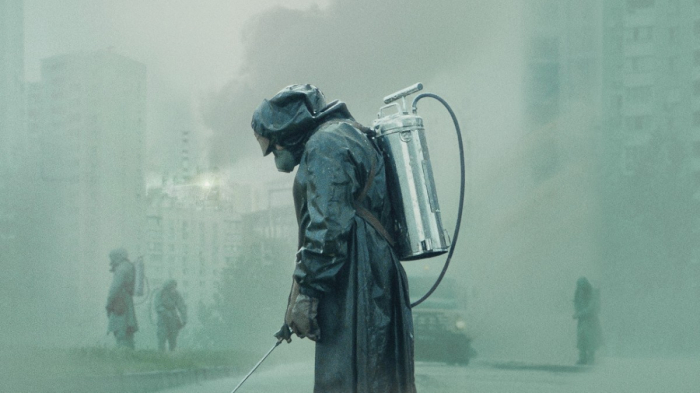Few television shows in recent years have been as compelling, yet as difficult to watch, as Chernobyl. The story of the hours and days following the 1986 nuclear reactor meltdown, and the many awful ways that radiation can kill, was expertly told.
But it was the antithesis of one of the prevailing objectives of today’s TV producers: to make a programme viewers love so much that they binge it all in one go. Chernobyl’s horrors were so richly realised that it was unbingeable.
Even though I was watching the show on Sky’s streaming service, Now TV, I found that watching in nightly instalments rather than rushing through it served only to heighten my appreciation of it.
The internet has been built on instant gratification, but Chernobyl got me wondering whether we occasionally need something to hold us back.
Netflix has built its business on bingeing. Being able to devour the latest series of House of Cards or Stranger Things as soon as it lands is immersive and indulgent, and has come to epitomise the freedom from the broadcast schedules that online streaming provides.
It’s also something the platform’s set-up actively encourages. Few subscribers realise that it is possible to turn off the auto-binge feature that starts playing the next episode of a series a few seconds after the credits of the last one begin to roll.
Netflix buries that option in the settings on its website and does not make it accessible from the smartphone and TV apps that most of us use to watch it.
Despite all the technology at the streaming services’ disposal, however, there has been relatively little innovation from them in exactly how we consume content. There is the daily or weekly cadence of broadcast “linear” TV at one extreme, bingeing at the other, and not much in the middle.
In “legacy” media, the pace of publication is dictated by the format. Digital delivery brings the luxury of choice. Viewers can watch whatever they want, wherever they want.
Few platforms have dared to tailor the user experience to a particular piece of content, forcing the audience to watch a TV show or film in the ideal environment — on a screen of a particular size, say — as going to the cinema once did.
Apple’s forthcoming Netflix rival, TV+, boasts an impressive roster of Hollywood talent but the content being produced by the Silicon Valley giant looks pretty similar to the output of traditional broadcasters such as HBO or the BBC.
Yet recent history suggests that making even the smallest tweaks to the user experience can pay big dividends. Snapchat may have become popular for its disappearing messages, but its greater contribution is replacing the 100-year-old widescreen format with vertical videos.
It turns out that saving hundreds of millions of people the tiny chore of rotating their smartphone screen by 90 degrees to watch a clip can be a multibillion-dollar idea.
Meanwhile, film industry veteran Jeffrey Katzenberg has raised $1bn for his new venture Quibi, based on the simple concept of bringing Hollywood production values to video in shorter, more digestible episodes that he hopes will match the way we already “snack” on content on our phones.
Adding “friction” to any user experience is heresy in the tech industry but making something impossible to binge could have its own rewards. What if Chernobyl or Black Mirror — the Netflix hit whose dystopian yarns likewise resist bingeing — came programmed with a 24-hour time limit between episodes?
A new approach to scheduling could crank up anticipation for the next instalment or build the loyalty that comes with habit. Chernobyl had a brilliant podcast commentary that delineated the boundary between fact and fiction; I wished I had listened to it between episodes rather than at the end of the series.
There are billions of smartphones in the world today. While Silicon Valley is obsessing over what comes next — whether that is augmented reality headsets or smart speakers — the versatility and ubiquity of the smartphone still provide plenty of room to experiment.
From instant streaming to next-day deliveries, technology has broken the idea that good things come to those who wait. But with a little imagination, making something unbingeable could be a feature, not a bug.
Tim Bradshaw is the FT’s global technology correspondent.
Read the original article on Financial Times.
More about: Tvseries
















































